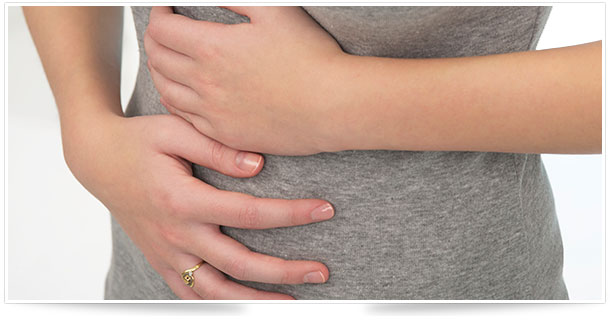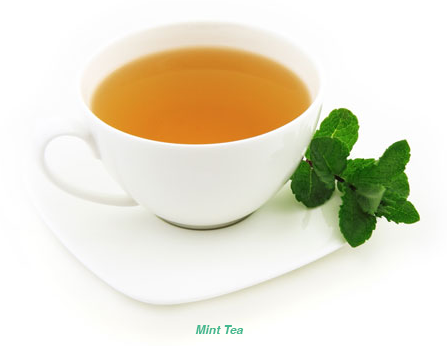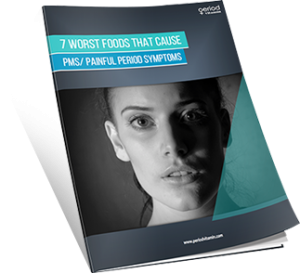What causes gas pain during the period is food within the intestinal tract. The longer it ferments inside the digestive system, the more gas you get. Normal amounts of gas are common, but if you are passing gas all day long or even for several hours, you have too much gas.
The Difference Between Gas Pains and Menstrual Cramps

During your period you may have wondered to yourself, can gas pain feel like menstrual cramps? It’s important to tell the difference between gas pains and menstrual cramps.
Gas pains are sharp and are short in how long they last. Gas pains come in waves and then end as soon as you move your bowels. They usually last up to 30 minutes and could be constant.
Menstrual cramps are generally a type of dull pain that last longer periods of time, such as for a minute or longer. They come in waves, too. Menstrual cramps last longer than gas pains and can last for several hours, but they are not usually constant.
Pain is usually measured on a 0 to 10 scale where 0 is no pain at all and 10 is the worst possible pain you could have. Gas pains are usually higher on the pain scale than menstrual cramps, although the amount of time that the pain level is high is short.
The best way to know if you have gas pain or menstrual cramps is to eliminate any cause of gas pain before your period starts. Stay away from any foods that have caused gas for you in the past. This could include broccoli, cabbage, Brussels sprouts, radishes, arugula, corn, soy, or any food you are allergic to or sensitive to.
Even something as simple as berries or healthy grains could potentially cause gas pain. Don’t chew gum for the whole week before your period. Then there is no reason for you to have painful gas pain during your period, and you will only have menstrual cramps. It’s a good way for you to never have to ask the question, can PMS cause gas pain, anymore.
How to Relieve Painful Gas Pain During Your Period
There are herbal natural remedies that can be quite effective. Here’s a list of a few of them:
 1. A cup of peppermint tea
1. A cup of peppermint tea
Peppermint tea is full of menthol, which literally sponges up gas in the intestinal tract faster than a sponge sucks up water. To make a cup of peppermint tea, place a teaspoon of dried peppermint leaves in a coffee cup. Then add a cup of boiling water. Let it sit, covered for about five minutes. Then finally sip to your heart’s content.
2. A cup of spearmint tea
Spearmint tea is also a great natural remedy for gas before your period, during and after your period. To make a cup of spearmint tea, place a teaspoon of dried spearmint leaves in a coffee cup. Then add a cup of boiling water. Let it sit, covered for about five minutes. Then finally sip to your heart’s content.
3. A cup of chai tea
Chai tea contains different herbs, depending on who’s making it and what herbs they want to use. However, the ingredients often are ones that calm down the stomach and help food move through the intestines easily. Some of the herbs in a chai formula could include ginger (helps gas pains), fennel (helps gas pains), star anise (helps gas pains), cardamom (helps gas pains), cloves, nutmeg, peppercorns, and cinnamon.
To make chai tea, you add the herbs and spices to the black tea, simmer for a few minutes, then add the black tea. Boil this brew for 10 minutes. Next add milk and simmer for about 5 more minutes. Then strain it and sweeten it.
4. Charcoal capsules
Charcoal is an adsorbent, and draws noxious chemicals and gas to its chemical structure, holding on to it. Thus, you can always use charcoal any time you have gas. Two capsules are generally the recommended dosage, and you can take six per day.
Vitamins and minerals also are important to prevent gas. If you don’t have enough magnesium in your diet, your colon motility slows down and the food starts to ferment inside the intestines. This means you end up with gas.
All the vitamins and minerals work together in the body so it’s important to take a multivitamin. One of the best for women could be a period vitamin because it’s created specifically to meet the needs of women during their entire month, and especially during their period.



